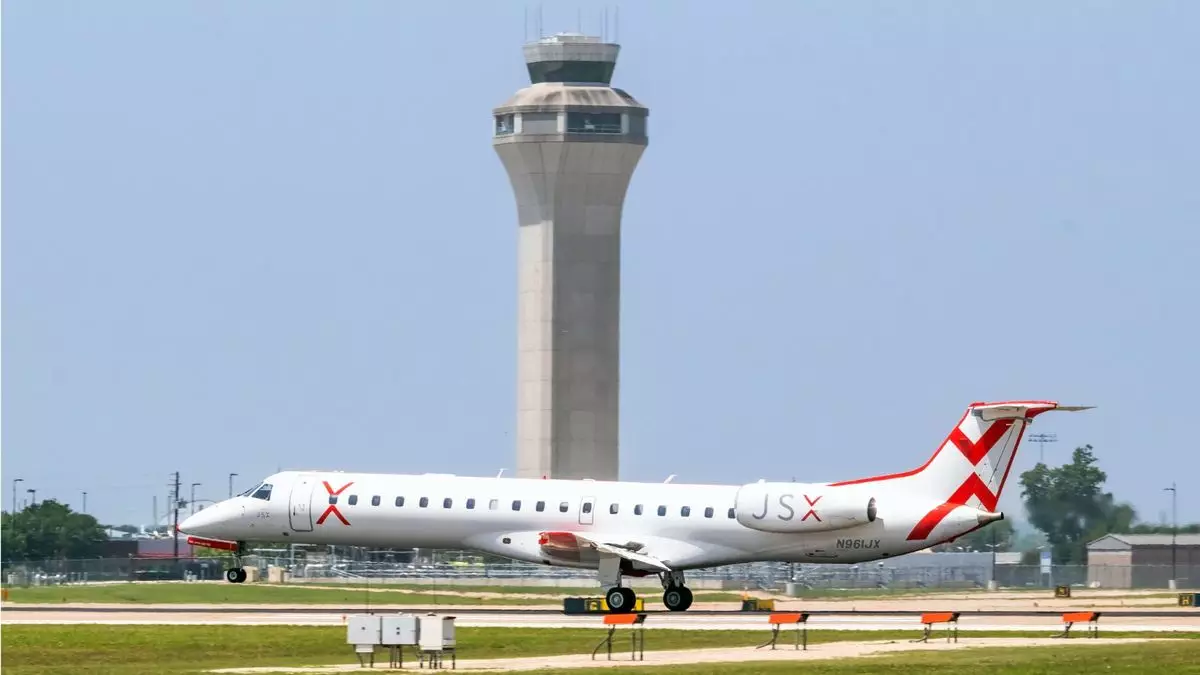The Federal Aviation Administration (FAA) is making moves to implement new regulations that would require public air charters to adhere to the same safety standards as large commercial airlines. Furthermore, the FAA is considering a new regulatory framework that would specifically target operators of scheduled flights that utilize aircraft with seating capacities ranging from 10 to 30 seats.
These proposed changes are expected to have a significant impact on airlines such as JSX, Contour Airlines, and SkyWest. JSX, a company that operates scheduled flights at 23 airports, would have to adhere to stricter regulations. SkyWest, based in Utah, plans to operate commuter flights under their own brand using public air charter authority, and might also be affected. Public charter operators are currently not subjected to certain safety regulations that commercial airlines must follow, such as the 1,500-hour flight-training rule for pilots and the mandatory retirement age of 65 for commercial pilots.
The FAA is working in conjunction with the Transportation Security Administration (TSA) to enhance safety measures for public charter operations. The TSA has proposed mandatory screening for passengers on all public charter flights to ensure the safety and security of passengers and flight crew members. A 45-day comment period for this proposal will end on June 27th.
The debate surrounding public charters has divided major players in the U.S. aviation industry. Supporters of public charter operators, such as JSX, include JetBlue and United airlines. On the other hand, opponents of public charters, including American, Southwest, and various airline unions, have raised concerns about the less stringent training standards for pilots in public charter operations. The Air Line Pilots Association (ALPA) and the Association of Flight Attendants-CWA are among the unions that have voiced their opposition to the current regulations.
Recently, the FAA announced its intention to evaluate a new regulatory framework for operators of scheduled flights with 10 to 30 seats. This move has received mixed reactions from stakeholders in the industry. While ALPA President Jason Ambrosi commended the FAA for prioritizing safety, SkyWest expressed reservations about the decision and emphasized that their safety standards for charters would surpass any proposed regulations. JSX welcomed the FAA’s plans to assess a new operating authority for smaller aircraft, emphasizing the importance of expanding air service to underserved communities.
The FAA’s efforts to tighten regulations on public air charters are aimed at enhancing safety standards across the industry. By ensuring that public charter operators comply with the same safety rules as commercial airlines, the FAA seeks to minimize risks and prioritize passenger and crew safety. The collaboration between the FAA and TSA on implementing stricter security measures further underscores the commitment to ensuring safe air travel for all passengers. As the aviation industry navigates these regulatory changes, stakeholders must work together to uphold the highest safety standards and ensure the accessibility of air travel to communities of all sizes.

